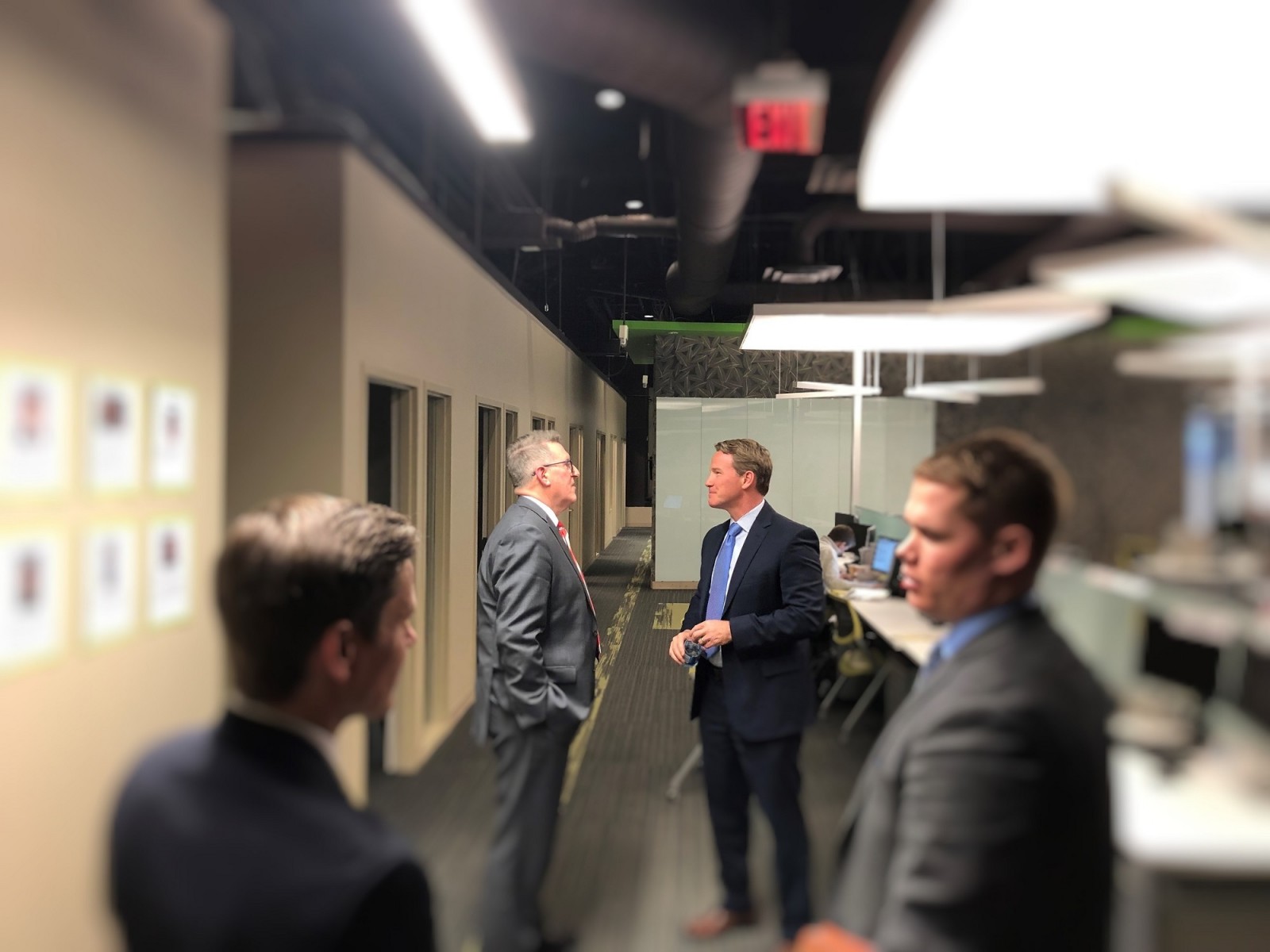Husted discusses research innovation at Ohio State

Add me on LinkedIn (opens in new window)
|
Chris Booker Ohio State News 614.292.7276 |
The Ohio State University’s work to streamline the process of bringing faculty research to market could serve as a guide for the state.
Lt. Gov. Jon Husted spent an afternoon last week with some of the university’s faculty and leadership in technology commercialization. He said the goal of the current administration is to keep the state at the forefront of economic development.
“I have always believed in innovation as being an important part of the American economy and in making Ohio a bigger player in the American and global economy,” Husted said.
The university is seeing investment in technology commercialization pay off. Ohio State set a record in technology commercialization licensing income in 2018, ending the fiscal year at more than $7.9 million. That’s more than double the previous year’s income.
The university’s startups are prospering as well. The portfolio of active startups created from Ohio State research is now at 85, with 18 new startups created in the most recent fiscal year.
Husted said the administration is looking for ways to help incentivize the innovative research in the state. He said the governor’s office is looking at proposals to ensure faculty could keep a greater percentage of the proceeds from their intellectual property.
“We would love for Ohio State to be a leader in making this happen,” he said.

We made a decision that we were going to delight faculty – that was our No. 1 metric across the entire organization
Scott Osborne, interim vice president for economic and corporate engagement at Ohio State, said a more simplified process and standardized term sheets were some of the ways the university is helping faculty connect innovative research with opportunities.
“We made a decision that we were going to delight faculty – that was our No. 1 metric across the entire organization,” he said. “Because whether it’s corporate engagement, economic development or technology commercialization, nothing happens without faculty being fully on board and feeling like they can trust us.”
Melissa Bailey, associate professor in the College of Optometry, told Husted she believes the university is on the right track. Bailey is the inventor of an app that helps eye care providers determine a glasses prescription estimate and also if a patient’s eyes are misaligned.
Bailey said her startup ventures have been aided by a supportive commercialization office.
“I think these processes have been very straightforward,” she said. “I have personally found this office has been very responsive.”
Husted said universities should find ways to continue to innovate the commercialization process.
A proposal from the administration is expected sometime this summer.



